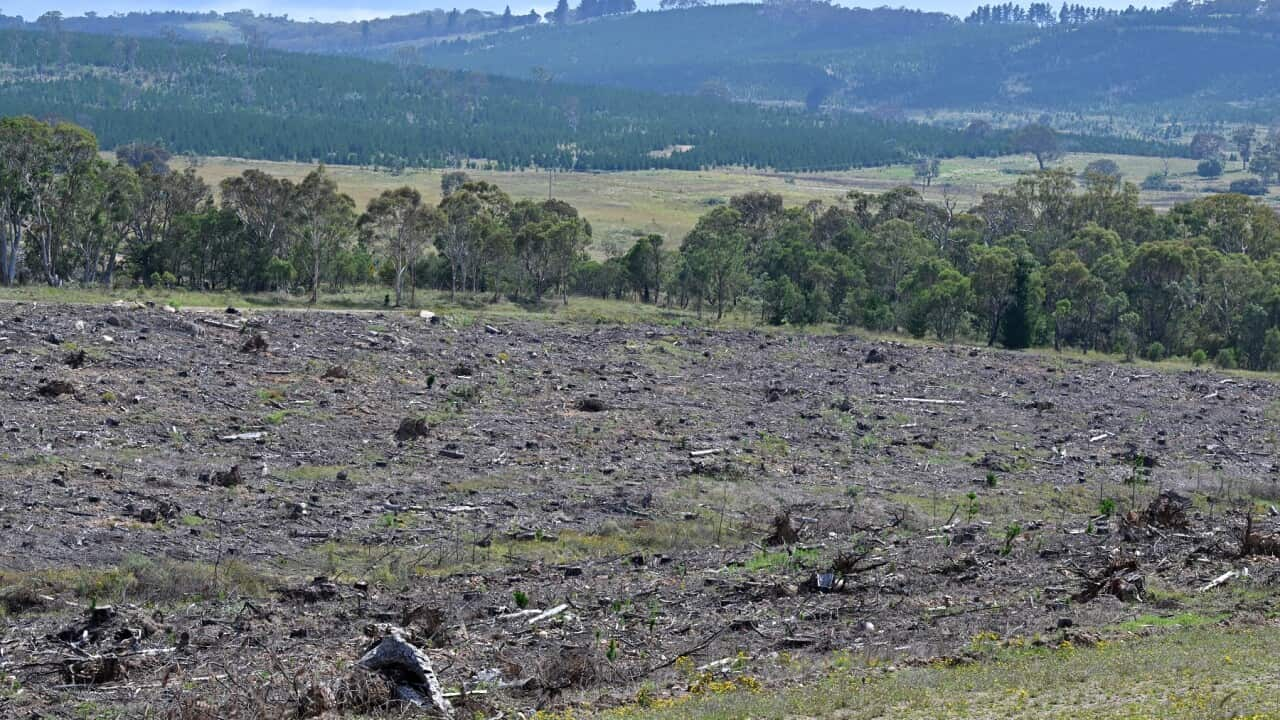TRANSCRIPT
As the world battles the surging effects of climate change, a rapid decline in biodiversity has also been quietly unfolding.
Australia, known for its rich and diverse natural environment, is particularly sensitive to biodiversity risks and already has one of the highest rates of species extinction.
The situation has sparked an unprecedented alliance of environmental advocates and industry leaders to come together to address this critical issue in a first-of-its-kind World Nature Positive Summit.
Chief executive of the Australian Conservation Foundation, Kelly O'Shanassy says the goal of the summit is raise awareness and drive collective action to protect nature.
She says together, the bodies will examine the changes required to prioritise nature within economic frameworks.
“It means by the end of this decade, 2030, we want to have more nature, so healthier rivers, healthier forests than we had at the start of this decade. Unfortunately, since colonization in our nation and around the world, nature has really been damaged. We've been bulldozing the bush. We've been polluting our rivers and, of course, polluting our climate, and that has meant that many animals and ecosystems that we love and rely on that's threatened with extinction, and we need to turn that around, and that summit is focused on that particular important challenge.“
Biodiversity is a key indicator of the health of an ecosystem.
It is all the variety of all living things and their interactions - the variety of animals, plants, fungi, and even microorganisms like bacteria that make up our natural world.
The decline in biodiversity not only threatens vital ecosystems around the world but also poses significant risks to industries.
Research by consulting firm Ernst & Young (EY) reveals that biodiversity loss can disrupt supply chains, hurt productivity, and damage the reputations of businesses, making it an economic issue as much as an environmental one.
Kristy Graham, chief executive of the Australian Sustainable Finance Institute, says there is a strong trend across global financial systems, regulators, and central banks to include nature-related risks in their business operations and Australia needs to catch up.
“In Australia, we are an importer of international capital. Australia really needs to keep pace with international developments and understand what nature related risks mean for our economy, for our businesses, for our financial institutions, and what we're doing to manage them. So the Global Nature Positive Summit is a great opportunity to better understand what's happening globally, adapt and take some of that for the Australian context, and ultimately support Australian financial institutions to be better understanding and managing nature related risks and allocating capital towards nature opportunities.”
And Head of policy at the Australian Institute of Company Directors, Christian Gergis says biodiversity loss will impact businesses and industries in Australia, if not tackled immediately.
“Nature is key to our shared prosperity. A strong economy depends on a strong natural environment, and we need collective effort from business, government and the community to restore our natural environment for today's generation and tomorrow's.”
Australia may have unique species and ecosystems but with everything from coral bleaching, to deforestation, they face one of the highest extinction rates in the world.
The country's natural ecosystem is under intense pressure, making minimising biodiversity loss more urgent than ever.
The connection between nature and Australia’s prosperity is substantial, with about half of the nation's gross domestic product [[GDP]] relying on its natural services, either directly or indirectly.
The Global Nature Positive Summit gives Australia an opportunity to implement the Global Biodiversity Framework's goal of preventing and reversing nature and biodiversity loss by 2030 into action.
Ms O'Shanassy says the summit is set to not just address Australia’s biodiversity challenges, but also set a precedent for the rest of the world.
“We're trying to get the world to understand that there is an extinction crisis around the world, and Australia is a global leader in that; that we can actually end extinction and protect species and the places that we love for ourselves and future generations but we need to act now and in Australia, that means fixing the broken nature protection laws that are currently stuck in Parliament. They need to be passed, improved and passed. That means better funding for nature, and that means real action on climate change. “
Ken Henry, Chair of the Australian Climate and Biodiversity Foundation says changes to natural habitats and biodiversity loss are linked to both the drivers and impacts of climate change.
Mr Henry says the two are closely related and collective action on nature is critical for Australia’s climate goals.
He says whatever is done in one area enables further progress in the other area.
“ Australia has a commitment to achieve net zero by 2050 in respect of carbon emissions. But we also have a goal in Australia of achieving nature positive. And that means and there are goals set out in the global biodiversity framework agreement that was signed off in Montreal at the end of 2022, that means that we have to stop destroying nature, and more than that, we have to begin the repair of heavily degraded ecosystems.”
Environment minister, Tanya Plibersek says transitioning from nature destruction to nature repair, will require a massive global effort.
She believes that while the government must take the lead, the private sector, environmentalists and First Nations groups must all work together.
Ms Plibersek says the government is committed to stopping nature's decline.
“We're already making really good progress. We're setting up our national independent Environment Protection Agency. We're fixing our environmental laws so that they do what they're meant to do. We're setting up a nature repair market. We're investing $550 million to better protect and restore our native, threatened plants and animals. And we're driving Australia's transition to a circular economy. We're working to deliver a future of net zero emissions. We're partnering with First Nations people as important custodians of our lands and waters, the global nature positive summit brings all of that work together.”
An important aspect of the summit is the inclusion of Indigenous perspectives, with leaders from Aboriginal communities playing an active role in discussions.
Indigenous Australians have practiced sustainable land management and conservation, or thousands of years, working in harmony with the natural environment.
By elevating Indigenous voices, the summit organizers hope to integrate traditional wisdom with modern science and industry practices, ensuring that any solutions proposed are both innovative and sustainable.













